
 The police can only decide who to arrest during a domestic disturbance call based on what they see after they arrive. What they see may be misleading and not representative of what actually happened. Often, the perpetrator of domestic violence is calm when the police arrive because they have been in complete control of the situation. The victim, however, is more likely to be in a highly emotional state due to having just been assaulted. Additionally, domestic abusers have a tendency to lie and blame the victim in order to avoid being arrested. There have been cases where the police have mistakenly arrested the victim. Famously, Utah police misidentified Gabby Petito as the aggressor in a domestic disturbance just weeks before she was found dead, having been murdered by her boyfriend. If you have been falsely accused of domestic violence while defending yourself, there are steps you can take to protect yourself legally. The first thing you do should be to call an attorney.
The police can only decide who to arrest during a domestic disturbance call based on what they see after they arrive. What they see may be misleading and not representative of what actually happened. Often, the perpetrator of domestic violence is calm when the police arrive because they have been in complete control of the situation. The victim, however, is more likely to be in a highly emotional state due to having just been assaulted. Additionally, domestic abusers have a tendency to lie and blame the victim in order to avoid being arrested. There have been cases where the police have mistakenly arrested the victim. Famously, Utah police misidentified Gabby Petito as the aggressor in a domestic disturbance just weeks before she was found dead, having been murdered by her boyfriend. If you have been falsely accused of domestic violence while defending yourself, there are steps you can take to protect yourself legally. The first thing you do should be to call an attorney.
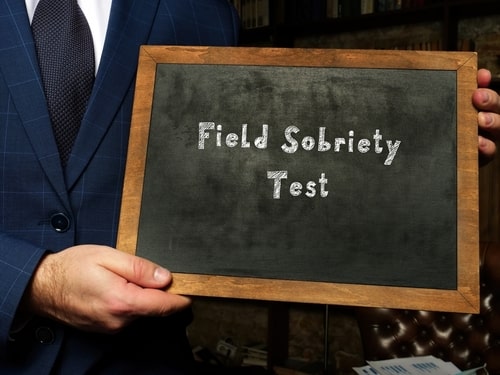 Facing a DUI charge can have serious consequences, but it is important to remember that failing a standardized sobriety test is not an automatic conviction. There are several defense strategies that skilled DUI attorneys can employ to challenge the validity and reliability of these tests. Today, we will explore potential defense strategies to consider when faced with a DUI charge after failing a standardized field sobriety test.
Facing a DUI charge can have serious consequences, but it is important to remember that failing a standardized sobriety test is not an automatic conviction. There are several defense strategies that skilled DUI attorneys can employ to challenge the validity and reliability of these tests. Today, we will explore potential defense strategies to consider when faced with a DUI charge after failing a standardized field sobriety test.
Standardized field sobriety tests, such as the walk-and-turn, one-leg-stand, and horizontal gaze nystagmus tests, rely on the subjective interpretation of the arresting officer. Many factors can influence these tests, including poor weather conditions, uneven terrain, physical health conditions, and the individual’s nervousness or anxiety. Challenging the reliability and accuracy of the test results is a potential defense strategy, often by presenting alternative explanations for the supposed signs of impairment.
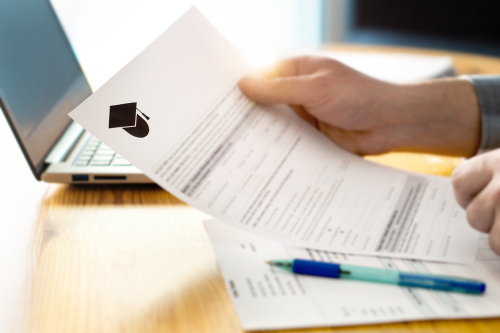 One of the major sources of anxiety for many high school students revolves around what they will do after graduating. Times have changed quite a bit since the youth of today’s parents and grandparents were young. A high school diploma is unlikely to help you get the job you truly want. There are fewer options for entering the workforce directly after high school, and the types of jobs that will hire recent high school graduates rarely pay well. For many if not most teenagers, going to college and pursuing a professional career is their preferred option. However, with the high percentage of high school students applying for college, colleges and universities can afford to be far more selective. Unfortunately, this means that applicants who have a pre-existing adjudication of juvenile delinquency are less likely to be selected for admission. If you are facing juvenile criminal charges - or have been charged as an adult - it is critical that you seek skilled legal counsel at once.
One of the major sources of anxiety for many high school students revolves around what they will do after graduating. Times have changed quite a bit since the youth of today’s parents and grandparents were young. A high school diploma is unlikely to help you get the job you truly want. There are fewer options for entering the workforce directly after high school, and the types of jobs that will hire recent high school graduates rarely pay well. For many if not most teenagers, going to college and pursuing a professional career is their preferred option. However, with the high percentage of high school students applying for college, colleges and universities can afford to be far more selective. Unfortunately, this means that applicants who have a pre-existing adjudication of juvenile delinquency are less likely to be selected for admission. If you are facing juvenile criminal charges - or have been charged as an adult - it is critical that you seek skilled legal counsel at once.
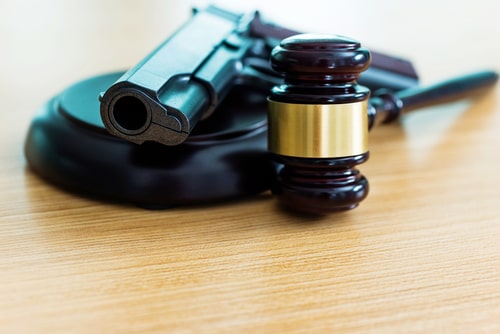 Jail time is not the only penalty or consequence of a criminal conviction. You may feel other impacts in your life because you have a criminal record. One potential effect is the loss of your ability to own a firearm, depending on your type of conviction. An Illinois criminal defense attorney can advise of what may happen if you are convicted and your possible legal options.
Jail time is not the only penalty or consequence of a criminal conviction. You may feel other impacts in your life because you have a criminal record. One potential effect is the loss of your ability to own a firearm, depending on your type of conviction. An Illinois criminal defense attorney can advise of what may happen if you are convicted and your possible legal options.
In Illinois, each gun owner must have a valid Firearm Owner’s Identification card (FOID). Without a FOID, you cannot legally buy or own a gun. One of the rights that you lose as a result of a forcible felony conviction is your ability to own or buy a gun. When you are convicted of a felony, your FOID will be revoked. If you already have a gun, you will need to give it up to avoid weapons charges. You may be able to keep your firearms if the conviction was not forcible.
 Plea deals, plea bargains, and plea agreements are all terms used to describe a situation in which a criminal defendant pleads guilty to a crime in order to receive a benefit of some kind. Although "true crime" television shows would lead most people to believe that nearly every criminal case ends up at trial, plea deals are actually very common in criminal cases.
Plea deals, plea bargains, and plea agreements are all terms used to describe a situation in which a criminal defendant pleads guilty to a crime in order to receive a benefit of some kind. Although "true crime" television shows would lead most people to believe that nearly every criminal case ends up at trial, plea deals are actually very common in criminal cases.
When you are charged with a crime and the prosecution offers you a plea deal, you should take time to consider all the options before making a decision. Each case is different and there is no one-size-fits-all answer. Speak to an experienced criminal defense lawyer and carefully weigh the pros and cons of accepting a plea deal versus going to trial.
The type of plea deal offered to a defendant depends on the specific facts and circumstances of their case. Common types of plea deals in Illinois include:
 Everybody has the right to defend themselves and protect themselves from harm. However, proving that an action was taken in self-defense is a complicated legal undertaking. If you or a loved one were charged with assault, battery, aggravated assault, or aggravated battery for acting in self-defense, you may be feeling overwhelmed and unsure what to do next.
Everybody has the right to defend themselves and protect themselves from harm. However, proving that an action was taken in self-defense is a complicated legal undertaking. If you or a loved one were charged with assault, battery, aggravated assault, or aggravated battery for acting in self-defense, you may be feeling overwhelmed and unsure what to do next.
One of the first steps you should take if you are accused of any violent crime is to secure legal counsel. An experienced criminal defense attorney will be able to evaluate your specific case and help you determine the next steps.
If you were involved in a physical altercation, you might find yourself facing criminal charges for assault or a related offense. Depending on the severity of the offense, a conviction can lead to life-changing consequences, including jail time and a permanent criminal record.
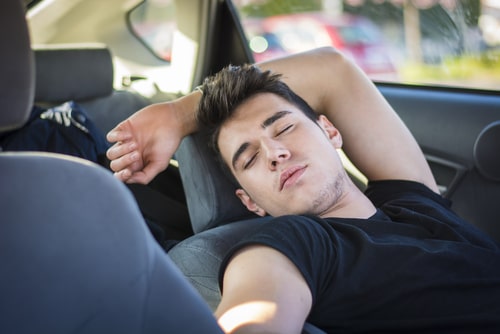 Consider the following scenario: A woman goes out to a bar with her friends after work. One glass of wine quickly turns into an entire bottle, and before she knows it, she is too intoxicated to drive home. In order to avoid the chances of being arrested for driving under the influence (DUI), she decides to sleep in her car for a few hours and then drive home once she has sobered up. However, she soon wakes up to a knock at her window and a police officer arrests her for drunk driving.
Consider the following scenario: A woman goes out to a bar with her friends after work. One glass of wine quickly turns into an entire bottle, and before she knows it, she is too intoxicated to drive home. In order to avoid the chances of being arrested for driving under the influence (DUI), she decides to sleep in her car for a few hours and then drive home once she has sobered up. However, she soon wakes up to a knock at her window and a police officer arrests her for drunk driving.
Situations like these often come as a shock to a DUI defendant. Most people do not realize that they can be arrested for and charged with DUI even if they were not actually driving the car. Whether you or a loved one has been charged with drunk driving or you simply want to be informed about your rights, it is essential to understand Illinois law regarding driving under the influence.
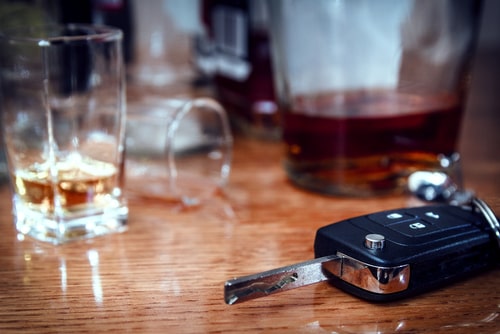 There are two main categories of penalties in an Illinois drunk driving case: administrative penalties and criminal penalties. You must be convicted, or found guilty, of driving under the influence to be subject to criminal penalties such as community service or jail time. However, administrative penalties are enforced whenever somebody fails or refuses to take a chemical blood alcohol concentration test. Typically, the administrative penalties for a DUI arrest include suspension of your driver's license. Once your license is suspended, it is illegal for you to drive a motor vehicle. Fortunately, there may be a way to regain the ability to drive legally before your suspension is over through a Monitoring Device Driving Permit (MDDP).
There are two main categories of penalties in an Illinois drunk driving case: administrative penalties and criminal penalties. You must be convicted, or found guilty, of driving under the influence to be subject to criminal penalties such as community service or jail time. However, administrative penalties are enforced whenever somebody fails or refuses to take a chemical blood alcohol concentration test. Typically, the administrative penalties for a DUI arrest include suspension of your driver's license. Once your license is suspended, it is illegal for you to drive a motor vehicle. Fortunately, there may be a way to regain the ability to drive legally before your suspension is over through a Monitoring Device Driving Permit (MDDP).
If you or a loved one were arrested for driving under the influence, you may be exploring your options. Illinois recognizes that many people need to drive to be able to work, transport children to and from school, or take care of other vital needs. If this is your first DUI or you have not had any DUI charges within the past five years, and you are 18 years or older, you may be able to get an MDDP. However, you do not qualify for this permit if your license was already suspended at the time of the DUI arrest or you are accused of causing a drunk driving accident resulting in injury or death.
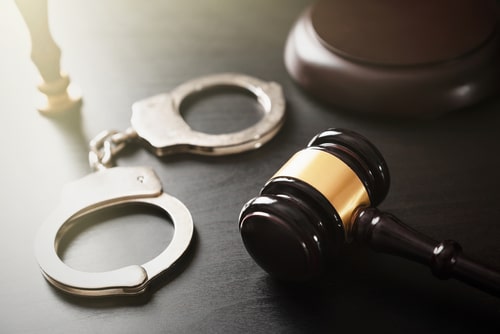 Having a criminal record can influence nearly every aspect of a person's life. If you were previously arrested and charged with a crime, you may have already experienced the repercussions of having a criminal record. Finding employment, housing, and educational opportunities is much harder when you have a record. It can also be embarrassing or downright infuriating to be judged by other people who do not know the circumstances surrounding the criminal allegations against you.
Having a criminal record can influence nearly every aspect of a person's life. If you were previously arrested and charged with a crime, you may have already experienced the repercussions of having a criminal record. Finding employment, housing, and educational opportunities is much harder when you have a record. It can also be embarrassing or downright infuriating to be judged by other people who do not know the circumstances surrounding the criminal allegations against you.
Fortunately, individuals in this situation may be able to clear their names by getting their records expunged. If successful, an expunged record will no longer appear on background checks and employers will not be able to see past criminal charges. Expunging your record can be a powerful way to start anew and put the past behind you.
Record expungement completely erases any record of an arrest or criminal charge. The charge cannot be viewed by anyone once it is expunged. However, only certain records may be expunged. You can erase a record if:
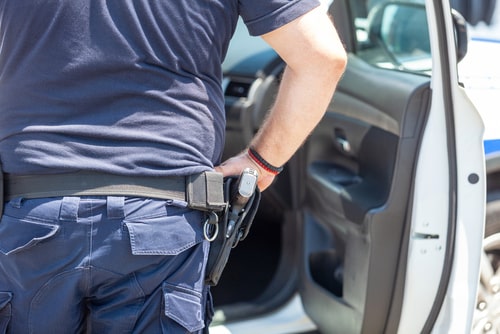 Fortunately, individuals in the United States are protected by various local, state, and federal laws – many of which are designed to protect our privacy. The Fourth Amendment to the Constitution specifically addresses when an individual’s personal property may be searched or taken by government officials such as police officers. Everyone has a responsibility to understand their rights when it comes to personal property and assert those rights when necessary. However, if you or a loved one were arrested and charged with a crime after a vehicle search, it is even more crucial that you understand your rights.
Fortunately, individuals in the United States are protected by various local, state, and federal laws – many of which are designed to protect our privacy. The Fourth Amendment to the Constitution specifically addresses when an individual’s personal property may be searched or taken by government officials such as police officers. Everyone has a responsibility to understand their rights when it comes to personal property and assert those rights when necessary. However, if you or a loved one were arrested and charged with a crime after a vehicle search, it is even more crucial that you understand your rights.
Motor vehicles including cars, trucks, and vans may only be searched under certain conditions. However, the expectation of privacy is lower for an automobile than a home. Police generally need a search warrant to search a house or apartment, but they do not usually require a search warrant before conducting a vehicle search.
 A lawyer’s time and advice are his stock and trade.
A lawyer’s time and advice are his stock and trade.